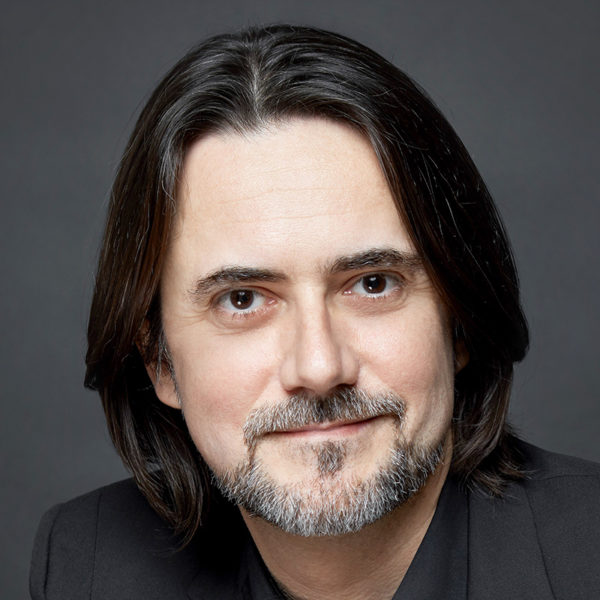Babson Bestows New Award Honoring Family Entrepreneurs to Ernesto Bertarelli ’89

When Ernesto Bertarelli ’89 was in high school, he wasn’t performing well academically. His father, a successful businessman, visited him in his room to talk.
“How can I make everyone work successfully, but not you?” asked his father, Fabio, who at that moment was the longtime chief executive of Serono, his family biotechnology company.
“I’m not one of your employees,” replied young Bertarelli. “I’m your son.”
His father was taken aback by the answer, remembers Bertarelli, and the conversation came to an end. Such is the way of families. As many of us know all too well, the dynamics of family relationships are tricky and nuanced, and those relationships are made even more complicated when a family is in business together.
A talk between family members carries with it the weight of their shared experiences and history. “They are way more complex than any conversations that can exist between colleagues or staff,” says Bertarelli, who represented the third generation of his family at Serono.
At the same time, families in business also carry with them shared values, and those values are often instrumental in a venture’s success. Bertarelli took over as Serono’s leader in 1996, and the company grew substantially under his direction before being sold to Merck for $13.3 billion in 2006. Today, Bertarelli is chairman of Waypoint Capital Group, co-chair of the Bertarelli Foundation, and founder of the yachting team Alinghi, which has twice won the America’s Cup.
In recognition of his family’s many contributions to the global business and entrepreneurship community, Babson College has awarded Bertarelli the inaugural Babson-Camus Global Family Entrepreneurship Award. The award was established to honor a highly distinguished and uniquely impactful business family that has created significant economic and social value across generations.
The award hopes to draw attention to the importance of family businesses to the world economy and the often overlooked ways that these ventures become successful. Bertarelli learned a lot by attending Babson and later Harvard Business School, he says, but the lessons he learned from his father were essential. “Over time, I started questioning what it was that made me successful,” he says. “Was it my academic education, which had nothing to do with my father? Or, was it everything I carried from him into my role that made me succeed?”
“It is family entrepreneurship that is creating the economic and social value around the world.”
Cyril Camus '91, Babson trustee and chair of Babson's Global Advisory Board
Not Fully Understood
The Babson-Camus Global Family Entrepreneurship Award was presented during Babson Connect: Worldwide, the College’s annual entrepreneurial summit. Babson’s Institute for Family Entrepreneurship created the award in partnership with Cyril Camus ’91, Babson trustee, chair of Babson’s Global Advisory Board, and the president of Camus Cognac, a fifth-generation family business.
For Camus, the award is a recognition of the power of family businesses, which account for approximately 70% of global GDP. “It is family entrepreneurship that is creating the economic and social value around the world,” he says.

Cyril Camus ’91, the president of Camus Cognac, a fifth-generation family business
For something so important, though, it is not always fully understood, Bertarelli says. Business schools may educate about all the fundamentals of, well, business, but they often are much less illuminating on the inner workings of family enterprises. “Academics like to study facts,” he says. Studying family entrepreneurship is much more intangible. “It’s in the realm of values, beliefs, in the realm of relationships, aspirations,” he says. “Things that are much more subtle.”
Bertarelli, who was inducted into the Academy of Distinguished Entrepreneurs® in 2008, supports Babson’s Institute for Family Entrepreneurship, funding The Bertarelli Foundation Distinguished Professor of Family Entrepreneurship chair, because he believes the College is the rare institution that realizes that the key to understanding family business is not to focus only on the business, but on the family behind it.
“We are grateful for the thought leadership and support that Ernesto Bertarelli has provided to the Institute for Family Entrepreneurship,” says Lauri Union, the Nulsen Family Executive Director. The IFE’s programs, which are meant for Babson students and their families, focus on relationships and self-reflection as the key building blocks of family entrepreneurship. “Our emphasis on the family and not just the business amplifies their capacity to create economic value and social impact across generations,” Union says.
Helping families to understand what makes them tick—what they believe in, what their passions are—can help them to thrive into the future, regardless of what enterprises they decide to pursue. “How were they able to pass along the business, or reinvent themselves, or tackle issues of leadership, vision?” Bertarelli says. “I think family values and family beliefs are one of the most powerful things there is to help the next generation to find its way.”
“I think family values and family beliefs are one of the most powerful things there is to help the next generation to find its way.”
Ernesto Bertarelli ’89
The Next Phase
This is all why entrepreneurial families need to think of themselves as separate from their businesses. Bertarelli did just that when he decided to sell Serono to Merck.
That was a tough decision. Serono was doing quite well at the time, but its growth came with risk. The family was essentially putting all its financial eggs, so to speak, in one basket. Bertarelli thought the family should diversify. “As Serono got bigger, the stakes got bigger,” he says. “Do families have to take the same risks that the business has to take? I came to the conclusion, to protect the interests of the family, it was better to sell the business.”
Bertarelli adds that many businesses aren’t meant to last forever, especially in these fast-paced days, and families need to recognize that. “Businesses have a due date,” he says. “There are so many businesses that fail, and if the family sticks with such a business, they will fail.”
That’s why a family’s entrepreneurial story shouldn’t be considered over when they sell their business—they are simply moving on to their next phase.
“The business doesn’t last forever,” Bertarelli says. “The family lasts forever.”
Posted in Community




